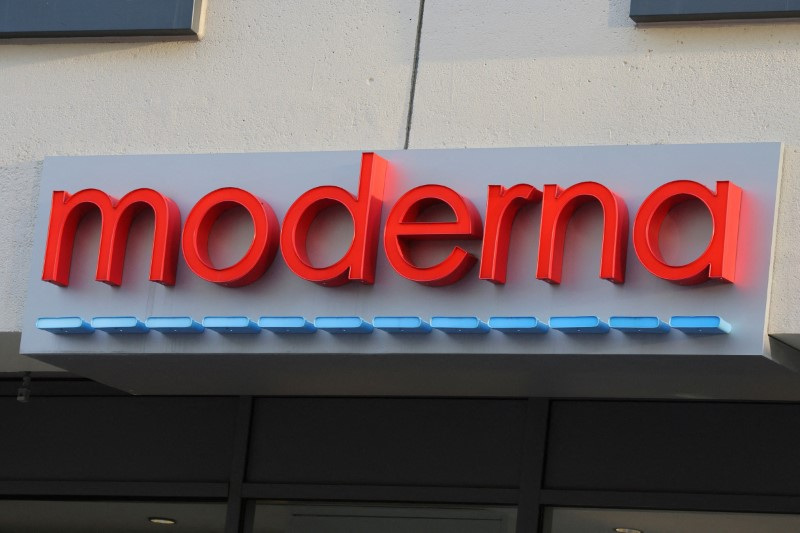Moderna forecasts lower sales next year, shares slide to four-year low
By Patrick Wingrove
(Reuters) -Moderna pushed its break-even goal by two years as it delayed the timeline for developing several key products and predicted 2025 sales below its forecast for this year, sending its shares down to a four-year low.
Shares of the vaccine maker tumbled 17.6% to $65.50 in early trading on Thursday.
The vaccine maker expects sales between $2.5 billion and $3.5 billion next year, below analysts' forecast of $3.74 billion, according to LSEG data. The midpoint was also below the $3 billion to $3.5 billion sales it projected for 2024.
The company, which has been struggling to shift away from its COVID vaccine, said the regulatory process for flu and cancer vaccines would take more time than it had indicated.
Moderna (NASDAQ:MRNA ) expects to have $6 billion as cash on hand by 2024 end, which according to Jefferies analyst Michael Yee was at the lower end of its prior view of $6 billion to $7 billion.
Its cost savings would include a cut of $1.1 billion from research and development starting 2026.
The company expects to break even on an operating cash cost basis in 2028, two years later than its prior view.
Next year's forecast reflects the uncertainty of the COVID and respiratory syncytial virus (RSV) markets in the U.S., Chief Financial Officer James Mock said.
It also accounts for Moderna's prediction that the 10 new products it expects to be approved by 2027 will start to generate meaningful revenue in 2028, he said.
"For 2025, we might have some new product approvals assumed, but there's not assumed to be much revenue from them," Mock said.
The company said new product launches would drive an average annual growth rate of 25% in revenue between 2026 and 2028.
Moderna said it plans to submit an FDA application this year to expand approval for its RSV shot to high-risk adults under the age of 60, following new data from a late-stage trial.
The regulator approved Moderna's mRESVIA shot for RSV-associated lower respiratory tract disease in adults aged 60 or older last May, pitting it against rival vaccines from GSK and Pfizer (NYSE:PFE ).
The company said it had dropped its request for fast-track approval as part of its FDA application for a standalone influenza vaccine. Instead it will focus on the application for its combination shot to protect against COVID and influenza, which it plans to submit this year.
Moderna said mRESVIA met all immune-response targets and was found to be safe and well-tolerated in adults aged 18 and older with a compromised immune system, but did not provide more details on the new study's findings.
Pfizer said in August its Abrysvo shot, which was approved last year for adults over the age of 60, generated a strong immune response in high-risk adults aged 18 and older.
The FDA in June expanded the use of GSK's Arexvy vaccine in adults between the ages of 50 and 59. The U.S. Centers for Disease Control and Prevention instead recommended RSV shots for all adults 75 and older, as well as those who are 60 to 74 and have an increased risk of severe RSV due to medical conditions.
Moderna said initial FDA feedback did not support an accelerated approval based on data from a mid-stage study for its cancer vaccine developed along with Merck.
Source: Investing.com
